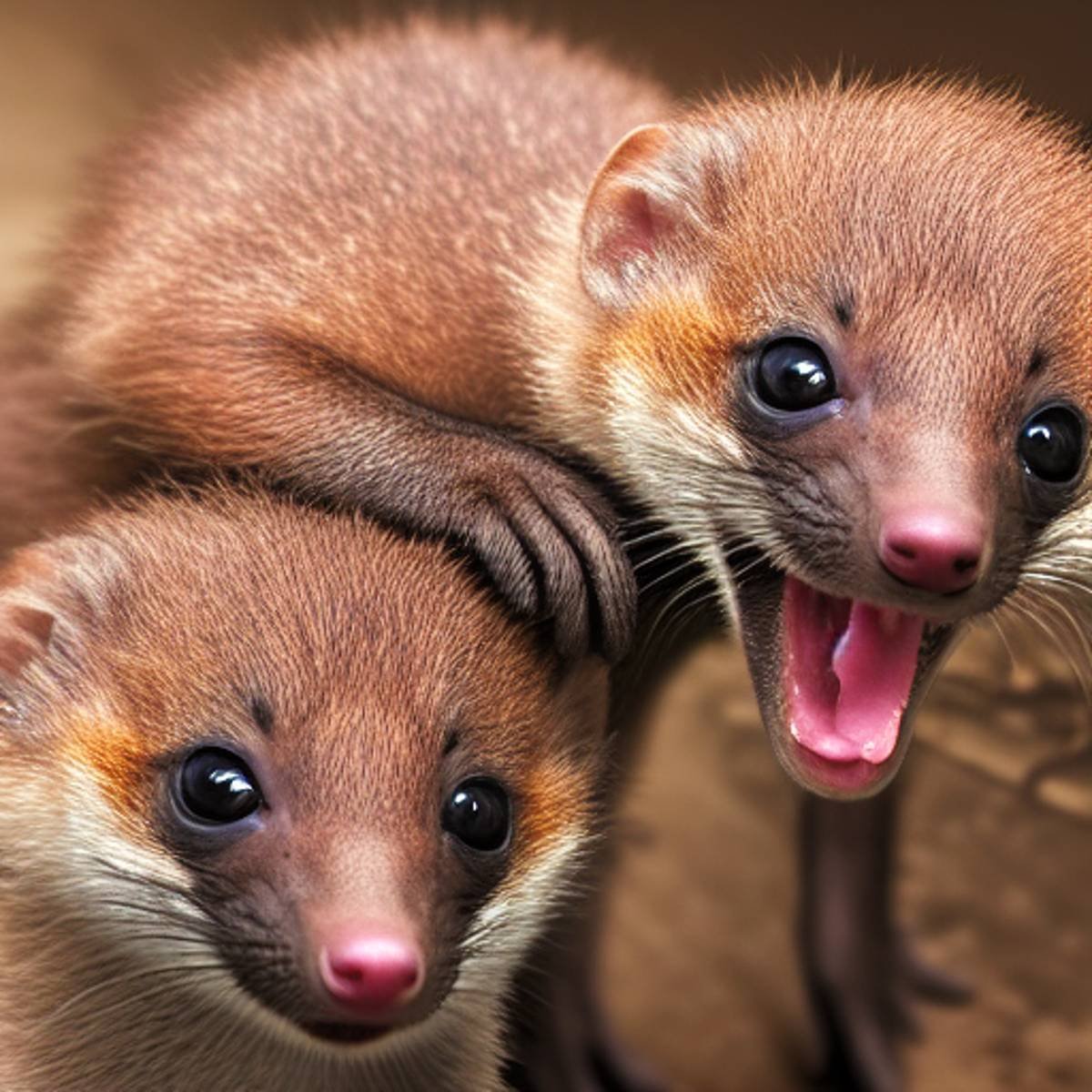A new study on mongoose society has found that because mothers in groups of mongooses all give birth on the same night, this creates a “veil of ignorance” about which mongoose pups belong to which moms.
And this leads to the pups being raised equitably, in a communal fashion.
The new paper appeared today in the journal Nature Communications, and was written by researchers from the universities of Exeter and Roehampton.
Mongoose moms eagerly redistribute food to whichever mongoose pups are hungry
In the new study, half of the pregnant mothers in wild mongoose groups were regularly given extra food, which deliberately led to increased inequality in the birth weights of their pups.
But after giving birth, the mothers who had received extra food quickly corrected this inequality.
They gave extra care to the smaller mongoose pups born to the unfed mothers — rather than their own pups — and the pup size differences quickly disappeared.
“In most of the natural world, parents favor their own young,” said co-author Harry Marshall of the University of Roehampton.
But in groups of mongooses, the evolution of birth synchrony — whereby the mongoose moms all give birth on the same night, presumably to protect the mongoose pups from predators — has led to “the unusual situation that mothers don’t know which pups are their own, and therefore cannot choose to give them extra care.”
“A fairer allocation of resources”
“Our study shows that this ignorance leads to a fairer allocation of resources – in effect, a fairer society,” Marshall said.
The study examined seven groups of banded mongooses in Uganda; the observations began in 1995.
Half of the pregnant females in each group received 50g of cooked egg each day.
The other half did not receive extra food.
Inequality at birth (measured by weight) was wider in breeding periods when food was provided than in periods where no extra food was given.
“We predicted that a ‘veil of ignorance’ would cause females to focus their care on the pups most in need,” said co-author Michael Cant of the University of Exeter, “and this is what we found.”
“Those most able to help offer it to the most needy, and in doing so minimize the risk that their own offspring will face a disadvantage.
This redistributive form of care ‘leveled up’ initial size disparities, and equalized the chances of pups surviving to adulthood,” Cant said.
The “veil of ignorance” works in practice. At least in mongooses.
“Our results suggest that the veil of ignorance, a classic philosophical idea to achieve fairness in human societies, also applies in this non-human society,” Cant said.
In this study, the authors showed that when a subset of mongoose mothers were given additional resources, they “invested disproportionately in smaller, control offspring, not their own young.”
In other words, the “veil of ignorance” leads the mother to invest so as to “minimize the risk that their own offspring will face a disadvantage.”
This paper shows that “uncertainty about kinship in a non-human species can lead to a redistribution of resources to reduce inequality, consistent with the proposed role of the veil of ignorance in the evolution of human fairness norms.”
Study: “A veil of ignorance can promote fairness in a mammal society”
Authors: H. H. Marshall, R. A. Johnstone, F. J. Thompson, H. J. Nichols, D. Wells, J. I. Hoffman, G. Kalema-Zikusoka, J. L. Sanderson, E. I. K. Vitikainen, J. D. Blount, and M. A. Cant
Published in: Nature Communications
Publication date: June 23, 2021
DOI: https://doi.org/10.1038/s41467-021-23910-6
Photo: Joseph Smit – Proceedings of the Zoological Society of London 1901
Other recent science & psychology news:
- This dog personality test shows dogs become less curious, but more attached, as they age.

